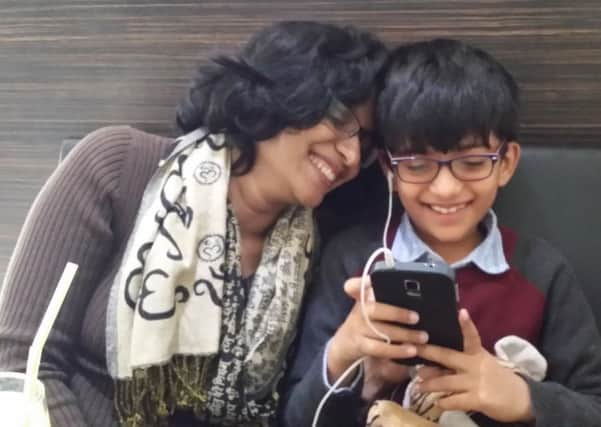Ramya Kumar: Why it's time people stopped viewing autism as a contagious disease


Ramya Kumar knew that life was going to be difficult for her autistic son Rishi. However, she only realised just how difficult when friends of the couple told them he would have to stay outside in the garden if they ever wanted to visit.
“He was just two years old,” says the former banking executive. “They said it was because of his behaviour on a previous visit, behaviour which is a direct result of his autism. Rishi is nine years old now, but from our experience attitudes towards individuals who are differently abled are still extremely negative. Sadly not much has changed since our son was born.”
Advertisement
Hide AdAdvertisement
Hide AdEchoing the experiences of many parents of children with learning disabilities, Ramya says her and her husband’s social circle has also shrunk and with Rishi often phased by crowds and busy environments they regularly turn down invitations to attend events as a family to avoid making other people feel uncomfortable.
“It’s particularly difficult when people don’t realise Rishi deals and interacts with people and his surrounding world differently,” she adds. “When he behaves in a way other people don’t understand, I end up explaining his condition and apologising for him, but I feel I shouldn’t have to.
“Both my husband and I have been left feeling extremely isolated and outcast from society, because I feel they don’t understand or want to understand my son and his and our challenges. It has made people act awkwardly and drift away from us.”
The Kumars are not alone. New research by Mencap has found 63 per cent of parents of children with a learning disability have had to miss social engagements in the last year due to concerns about how people will react to their child and 70 per cent have felt unwelcome when out in public with their child. Another 21 per cent said their child had been asked to leave a public place because of behaviour resulting from their learning disability.
Advertisement
Hide AdAdvertisement
Hide AdWith 15,000 children born each year with a learning disability, the charity Mencap has launched a new awareness campaign to encourage the public to be more accepting of youngsters with autism and related conditions and to offer help and support to their parents.
Rossanna Trudgian, Mencap head of campaigns, says although public attitudes may have improved in the 70 years since the charity was founded, society “should feel ashamed” to have so little acceptance of children who may sometimes act differently to others.
“It’s heartbreaking that not only are children with a learning disability being dropped off birthday invite lists or being asked to stay in the garden away from other children, but almost a third of parents have felt forced to miss social engagements, such as their best friend’s wedding,” she says.
Trudgian points out, however, that solving the problem can be both easy and life-changing for parents like Ramya.
Advertisement
Hide AdAdvertisement
Hide Ad“If the public can think and not judge when they see a child behaving differently, and instead offer support and acceptance, this suffering could end overnight.
“Parents who dedicate their life to the love of their children shouldn’t have to feel the constant need to apologise if they’re different.”
She suggests people worried about how to react around children with a learning disability should pause and realise it’s OK to feel awkward, but they should still try to engage with the child.
“There’s a lot of confusion around learning disability,” she says, “but gaining a bit more understanding could change the lives of parents who have said in such large numbers that they are in need of help.”
For peer-to-peer support for parents of children with a learning disability, visit www.mencap.org.uk/familyhub